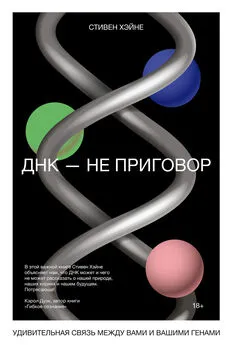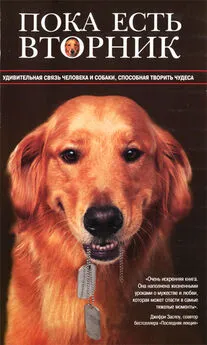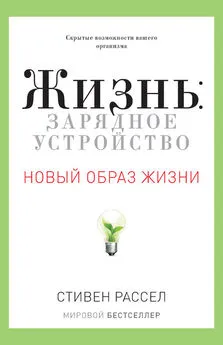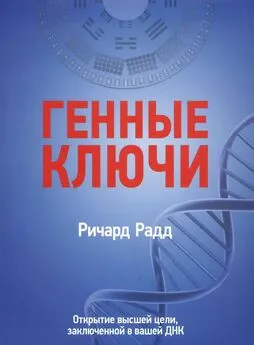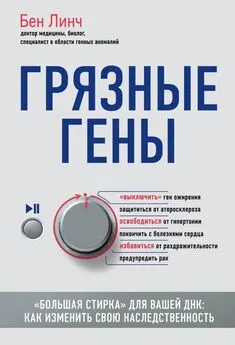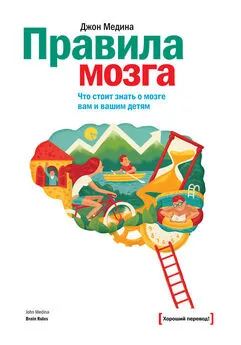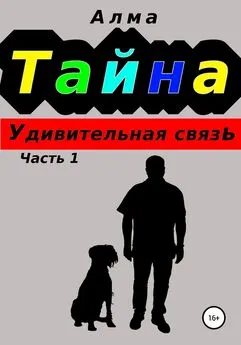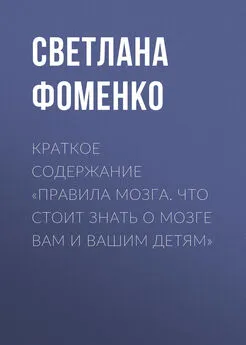Стивен Хэйне - ДНК – не приговор. Удивительная связь между вами и вашими генами
- Название:ДНК – не приговор. Удивительная связь между вами и вашими генами
- Автор:
- Жанр:
- Издательство:Литагент МИФ без БК
- Год:2019
- Город:Москва
- ISBN:978-5-00146-004-6
- Рейтинг:
- Избранное:Добавить в избранное
-
Отзывы:
-
Ваша оценка:
Стивен Хэйне - ДНК – не приговор. Удивительная связь между вами и вашими генами краткое содержание
ДНК – не приговор. Удивительная связь между вами и вашими генами - читать онлайн бесплатно ознакомительный отрывок
Интервал:
Закладка:
494
Примеры нескольких подобных несуществующих исследований, якобы свидетельствующих об опасности ГМО, см.: Smith, J. M. (2007). Genetic roulette: The documented health risks of genetically engineered foods . Fairfield, IA: Yes! Books.
495
Séralini, G.-E., Clair, E., Mesnage, R., Gress, S., Defarge, N., Malatesta, M., et al. (2012). Long-term toxicity of a Roundup herbicide and a Roundup-tolerant genetically modified maize. Food and Chemical Toxicology , 50, 4221–4231.
496
Hayes, A. W. (2014). Retraction notice to «Long-term toxicity of a Roundup herbicide and a Roundup-tolerant genetically modified maize». Food and Chemical Toxicology , 63, 244.
497
Wilson, R. D., Langlois, S., & Johnson, J. (2007). Mid-trimester amniocentesis fetal loss rate. Journal of Obstetrics and Gynaecology Canada , 194, 586–590.
498
Sayres, L. C., & Cho, M. K. (2011). Cell-free fetal nucleic acid testing: A review of the technology and its applications. Obstetrical & Gynecological Survey , 66, 431–442. Norton, M. E., & Wapner, R. J. (2015). Cell-free DNA analysis for noninvasive examination of trisomy. The New England Journal of Medicine , 372, 1589–1597.
499
Mansfield, C., Hopfer, S., & Marteau, T. M. (1999). Termination rates after prenatal diagnosis of Down syndrome, spinal bifida, anencephaly, and Turner and Klinefelter syndromes: A systematic literature review. Prenatal Diagnosis , 19, 808–812.
500
Natoli, J. L., Ackerman, D. L., McDermott, S., & Edwards, J. G. (2012). Prenatal diagnosis of Down syndrome: A systematic review of termination rates (1995–2011). Prenatal Diagnosis , 32, 142–153.
501
http://www.omim.org.
502
Интересно, что 23andMe обнаружила у меня рецессивные гены, с которыми связаны фенилкетонурия и дефицит альфа-1 антитрипсина. В то время как секвенирование экзома, проведенное компанией Gentle, определило меня как носителя генов дефицита альфа-1 антитрипсина и синдрома Меккеля – Грубера. Маркер для последнего синдрома не исследовался ДНК-чипом 23andMe. Тем не менее обе компании обнаружили у меня один и тот же ОНП, rs5030860, который 23andMe связала с фенилкетонурией. Но Gentle проинформировала меня, что симптомы, обусловленные этим ОПН, не подходят под описание классической фенилкетонурии. Следовательно, даже такие, казалось бы, очевидные случаи, как выявление рецессивных болезней, вызывают разногласия.
503
https://www.jewishgenetics.org/dor-yeshorim/.
504
Об интересных дискуссиях по поводу Дор Йешарим см.: Gessen, M. (2008). Blood matters . New York, NY: Mariner Books.
505
Appel, J. M. (04.03.2009). Mandatory genetic testing isn’t eugenics, it’s smart science. Opposing Views ( http://www.opposingviews.com/i/mandatory-genetic-testing-isn-t-eugenics-it-s-smart-science).
506
Savulescu, J. (2001). Procreative beneficence: Why we should select the best children. Bioethics , 15, 413–426 (p. 415).
507
Hudson, K., & Scott, J. (2002). Public awareness and attitudes about genetic technology . Washington, DC: Genetics and Public Policy Center.
508
Wasserman, D., & Asch, A. (2006). The uncertain rationale for prenatal disability screening. AMA Journal of Ethics , 8, 1, 53–56.
509
Цит. по: Abraham, C. (07.01.2012). Unnatural selection: Is evolving reproductive technology ushering in a new age of eugenics? The Globe and Mail ( http://www.theglobeandmail.com/life/parenting/unnatural-selection-is-evolving-reproductive-technology-ushering-in-a-new-age-of-eugenics/article1357885/?page=all).
510
Winkelman, W. D., Missmer, S. A., Myers, D., & Ginsburg, E. S. (2015). Public perspectives on the use of preimplantation genetic diagnosis. Journal of Assisted Reproductive Genetics , 32, 665–675.
511
Hudson, K., & Scott, J. (2002). Public awareness and attitudes about genetic technology . Washington, DC: Genetics and Public Policy Center.
512
Захватывающую историю Молли Нэш см.: Faison, A. M. (2005, Aug.). The miracle of Molly. 5 280: The Denver Magazine ( http://www.5280.com/2005/08/the-miracle-of-molly/).
513
Rivard, L. (11.06.2013). Case study in savior siblings. Scitable by Nature Education ( http://www.nature.com/scitable/forums/genetics-generation/case-study-in-savior-siblings-104229158).
514
Spriggs, M. (2002). Lesbian couple create a child who is deaf like them. Journal of Medical Ethics , 28, 283.
515
Baruch, S. (2008). Preimplantation genetic diagnosis and parental preferences: Beyond deadly disease. Houston Journal of Health Law & Policy , 8, 245–270.
516
Baruch, S., Kaufman, D., & Hudson, K. L. (2008). Genetic testing of embryos: Practices and perspectives of US in vitro fertilization clinics. Fertility & Sterility , 89, 1053–1058.
517
Winkelman, W. D., Missmer, S. A., Myers, D., & Ginsburg, E. S. (2015). Public perspectives on the use of preimplantation genetic diagnosis . Journal of Assisted Reproductive Genetics , 32, 665–675.
518
Savulescu, J. (2001). Procreative beneficence: Why we should select the best children. Bioethics , 15, 413–426.
519
Byrne, D. (1971). The attraction paradigm . New York: Academic Press.
520
Berscheid, E., & Dion, K. (1971). Physical attractiveness and dating choice: A test of the matching hypothesis. Journal of Experimental Social Psychology , 7, 173–189. Kalick, S. M., & Hamilton, T. E. III (1986). The matching hypothesis reexamined. Journal of Personality and Social Psychology , 51, 673–682.
521
Spar, D. L. (2006). The baby business . Boston, MA: Harvard Business School Press.
522
http://www.cryobank.com.
523
Цит. по: Plotz, D. (2006). The genius factory: The curious history of the Nobel prize sperm bank . New York, NY: Random House. P. 7.
524
Plotz, D. (2006). The genius factory: The curious history of the Nobel prize sperm bank . New York, NY: Random House.
525
Scheib, J. E. (1994). Sperm donor selection and the psychology of female mate choice. Ethology & Sociobiology (now Evolution and Human Behavior) , 15, 113–129. Scheib, J. E., Kristiansen, A., & Wara, A. (1997). A Norwegian note on sperm donor selection and the psychology of female mate choice. Evolution and Human Behavior , 18, 143–149.
526
The Ethics Committee of the American Society for Reproductive Medicine (2007). Financial compensation of oocyte donors. Fertility and Sterility , 88 (2), 305–309 ( https://www.asrm.org/uploadedFiles/ASRM_Content/News_and_Publications/Ethics_Committee_Reports_and_Statements/financial_incentives.pdf).
527
Spar, D. L. (2006). The baby business . Boston, MA: Harvard Business School Press.
528
Levine, A. D. (2010, March – April). Self-regulation, compensation, and the ethical recruitment of oocyte donors. The Hastings Center Report , 40 (2), 25–36.
529
Levine, A. D. (2010, March – April). Self-regulation, compensation, and the ethical recruitment of oocyte donors. The Hastings Center Report , 40 (2), 25–36.
530
Некоторые примеры, связанные с этой истерией, см.: Nichol, D. (28.02.1997). Hello Dolly, the Scottish designer sheep. The Globe and Mail . A. 19; Cohen, R. (30.03.1997). Hello, Dolly. The Washington Post . W04; Kolata, G. (24.02.1997). With cloning of a sheep, the ethical ground shifts. New York Times . Front page; Anonymous (01.03.1997). Clone the clowns. The Economist , 341, 80. См. также: Nelkin, D., & Lindee, M. S. (2004). The DNA mystique . Ann Arbor, MI: University of Michigan Press. P. 197; Condit, C. M. (1999). The meanings of the gene . Madison, WI: University of Wisconsin Press. P. 145.
531
Condit, C. M. (2010). Public attitudes and beliefs about genetics. Annual Review of Genomics and Human Genetics , 11, 339–359; Calnan, M., Montaner, D., & Horne, R. (2005). How acceptable are innovative health-care technologies? A survey of public beliefs and attitudes in England and Wales. Social Science & Medicine , 60, 1937–1948; Shepherd, R., Barnett, J., Cooper, H., Coyle, A., Moran-Ellis, J., Senior, V., et al. (2007). Towards an understanding of British public attitudes concerning human cloning. Social Science & Medicine , 65, 377–392; The Wellcome Trust (1998). Public perspectives on human cloning . Medicine Society Programme ( www.wellcome.ac.uk).
532
Tachibana, M., Amato, P., Sparman, M., Gutierrez, N. M., Tippner-Hedges, R., Ma, H., et al. (2013). Human embryonic stem cells derived by somatic cell nuclear transfer. Cell , 153, 1228–1238.
533
Shin, T., Kraemer, D., Pryor, J., Liu, L., Rugila, J., Howe, L., et al. (2002). Brief communications. Cell biology: A cat cloned by nuclear transplantation. Nature , 415, 859. См. также: Francis, R. C. (2011). Epigenetics: The ultimate mystery of inheritance . New York, NY: W. W. Norton; and Yin, Sophia (21.06.2011). Cloning cats: Rainbow and CC prove that cloning wont resurrect your pet [Blog post] ( http://drsophiayin.com/blog/entry/cloning-cats-rainbow-and-cc-prove-that-cloning-wont-resurrect-your-pet).
534
Ishino, Y., Shinagawa, H., Makino, K., Amemura, M., & Nakata, A. (1987). Nucleotide sequence of the iap gene, responsible for alkaline phosphatase isozyme conversion in Escherichia coli, and identification of the gene product. Journal of Bacteriology , 169, 5429–5433.
535
Английское название (clustered regularly interspaced short palindromic repeats) дает аббревиатуру CRISPR . Прим. перев.
Читать дальшеИнтервал:
Закладка:
